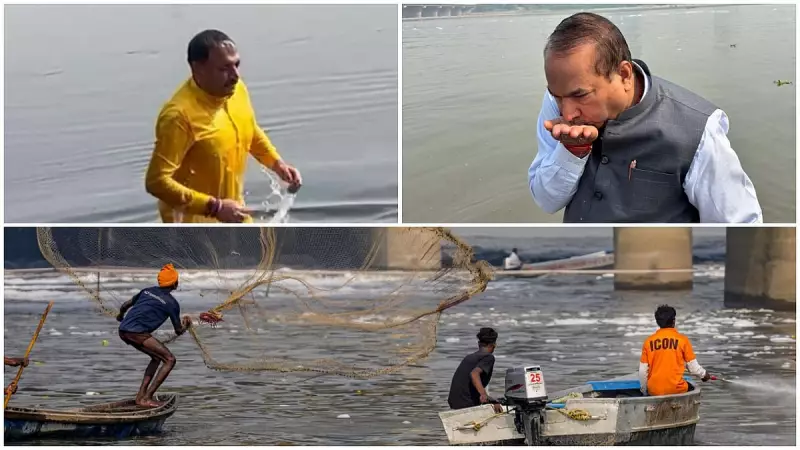
Even as Delhi continued to gasp for breath under a thick blanket of toxic smog following Diwali celebrations, BJP leaders swung into action to inspect the capital's ghats in preparation for the upcoming Chhath Puja festival. The political scrutiny of riverfront sites unfolded against the backdrop of severely compromised air quality that has left residents struggling.
Political Spotlight on Sacred Sites
Senior BJP figures, including MP Manoj Tiwari and other prominent party members, conducted thorough evaluations of various ghats along the Yamuna river. Their inspection tour covered multiple significant locations including Kalindi Kunj, Sonia Vihar, and ITO ghats, all crucial venues for the traditional Chhath celebrations.
The visiting delegation didn't mince words about their findings, pointing to what they described as inadequate preparations by the ruling Aam Aadmi Party government. They emphasized the urgent need for better facilities and cleaner conditions at these sacred sites ahead of the important festival.
Pollution Crisis Deepens
Meanwhile, Delhi's air quality remained firmly in the 'severe' category, with the Air Quality Index (AQI) hovering at dangerous levels above 400 across most monitoring stations. The toxic haze persisted throughout Thursday, creating visible smog conditions that reduced visibility and raised health concerns among medical experts.
Doctors and health professionals issued fresh warnings about the heightened risks, particularly for children, elderly residents, and those with pre-existing respiratory conditions. The continuing pollution emergency has put additional pressure on authorities to address both environmental and religious preparation concerns simultaneously.
Festival Preparations Amid Environmental Challenges
The timing of the ghat inspections highlights the complex challenge facing Delhi authorities: balancing essential religious observances with critical public health considerations. Chhath Puja, a significant festival particularly for migrant communities from Bihar and eastern Uttar Pradesh, involves extensive water-based rituals that require safe and accessible riverfront facilities.
As BJP leaders documented their assessment of the ghat conditions, the parallel pollution crisis added another layer of complexity to the ongoing preparations. The situation underscores the delicate balance between cultural traditions and environmental responsibility that urban centers like Delhi must navigate.
With the festival approaching rapidly, all eyes remain on how authorities will manage both the religious requirements and the pressing environmental health concerns affecting millions of Delhi residents.





